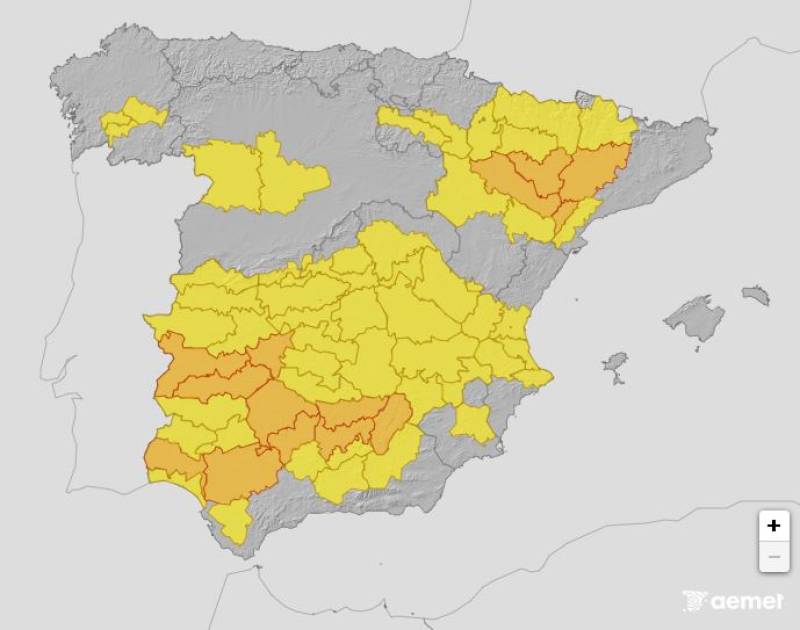

Guidelines for submitting articles to Santa Rosalia Today
Hello, and thank you for choosing Santa Rosalia.Today to publicise your organisation’s info or event.
Santa Rosalia Today is a website set up by Murcia Today specifically for residents of the urbanisation in Southwest Murcia, providing news and information on what’s happening in the local area, which is the largest English-speaking expat area in the Region of Murcia.
When submitting text to be included on Santa Rosalia Today, please abide by the following guidelines so we can upload your article as swiftly as possible:
Send an email to editor@spaintodayonline.com or contact@murciatoday.com
Attach the information in a Word Document or Google Doc
Include all relevant points, including:
Who is the organisation running the event?
Where is it happening?
When?
How much does it cost?
Is it necessary to book beforehand, or can people just show up on the day?
…but try not to exceed 300 words
Also attach a photo to illustrate your article, no more than 100kb

Spain's top court backs Amnesty Law despite huge public opposition
The ruling could see hundreds of Catalan separatists pardoned for serious crimes
 Spain's Constitutional Court has delivered a landmark ruling that upholds the controversial Amnesty Law for Catalan separatists, removing the final legal barrier to its implementation and potentially reshaping the country's political landscape forever.
Spain's Constitutional Court has delivered a landmark ruling that upholds the controversial Amnesty Law for Catalan separatists, removing the final legal barrier to its implementation and potentially reshaping the country's political landscape forever.
The court’s decision means the law, which sparked protests up and down the country last year, can now be fully implemented across Spain, which will affect hundreds of cases from Catalonia's long-running bid for independence between 2012 and 2023.
Courts across Spain will now need to start reviewing both ongoing cases and completed prosecutions to see which ones are covered by the amnesty. It's going to be a big job for judges, who'll have to look at each case individually.
While most people would expect Carles Puigdemont to be the biggest winner here, his situation is actually more complicated than it first appears. The former Catalan president has been living in exile in Belgium since 2017, and while the amnesty might cover some of the charges against him, he's not in the clear yet.
His issue is that Spain's Supreme Court has ruled that the Amnesty Law doesn't apply to embezzlement charges against Puigdemont. He still faces charges of disobedience and misappropriating funds that could land him in jail for up to eight years. The court says he can't be pardoned for allegedly misusing public funds during the independence campaign.
So even though the Constitutional Court upheld the Amnesty Law, Puigdemont probably still can't safely return to Spain.
Even with Puigdemont unable to come back to Spain, the amnesty is still a big deal for the independence movement. Hundreds of other Catalan officials, activists and politicians who got in legal trouble will have their cases thrown out and their criminal records wiped clean. This includes everyone from big-name politicians to regular activists who got caught up in the prosecutions.
Has Pedro Sánchez’s big gamble paid off?
For President Pedro Sánchez, the Constitutional Court backing the Amnesty Law is a massive political victory. The amnesty was a key part of his deal with Catalan parties to secure their backing in the 2023 elections, and getting it through shows he can deliver on tough promises even when there's fierce opposition.
The ruling helps solidify Sánchez's government by keeping his Catalan partners happy. Their support is crucial for keeping his shaky parliamentary majority together, so this gives him some breathing room as he deals with other challenges and looks ahead to the 2027 election.
The problem for Sánchez is that most Spanish people really don't like this Amnesty Law. Polls show that about 70% of voters oppose it, which could hurt him badly when he runs for re-election in 2027.
The conservative opposition parties - the Popular Party and the far-right Vox - are going to keep hammering him on this, saying he sold out the Spanish voters to stay in power. They'll use this issue to fire up their supporters and try to win over moderate voters who might be put off by Sánchez's deal with the separatists.
President Sánchez has already said that he plans to run again in 2027, but the Amnesty Law is a bit of a double-edged sword for him. On the one hand, it keeps his government stable and shows he can get things done, but it also gives his opponents plenty of ammunition to use against him.
Whether this strategy works out will probably depend on how well other things go - the economy, the housing crisis and whether people are still angry about the amnesty by the time the election rolls around. It's a risky move that could either secure his political future or come back to bite him.
Image: xenaia via Wikimedia Commons
Sign up for the Spanish News Today Editors Roundup Weekly Bulletin and get an email with all the week’s news straight to your inbox
Special offer: Subscribe now for 25% off (36.95 euros for 48 Bulletins)
OR
you can sign up to our FREE weekly roundup!
Read some of our recent bulletins:
Discount Special Offer subscription:
36.95€ for 48 Editor’s Weekly News Roundup bulletins!
Please CLICK THE BUTTON to subscribe.
(List price 3 months 12 Bulletins)
Read more stories from around Spain:
























